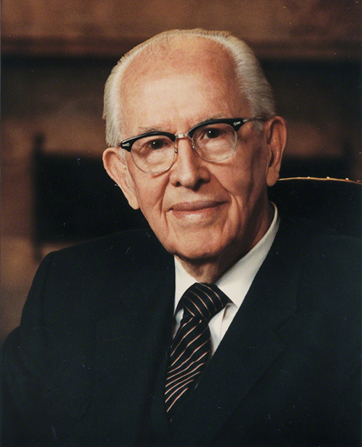Modern prophets have
declared that Jesus Christ“instituted the sacrament as
a reminder of His great atoning sacrifice” (Ensign or Liahona, Apr.
2000, 2). In addition to the ordinance of the sacrament, the scriptures
tell us of many events, circumstances, objects, and people that were intended
to remind us of and instruct us regarding the mission and ministry of Jesus
Christ. This lesson will help students consider some of these scriptural types,
shadows, and symbols that point us to the Savior.
Scriptural symbols of
Christ
Consider the
following:
IDENTIFY the meaning
of each sign, think of examples of other easily recognized signs or symbols.
Study and
compare 2 Nephi 11:4 and Moses 6:63. LOOK for what these passages have in common
and what they teach you about Jesus Christ and the purpose of God’s
creations.
• How would you state a
central truth recorded in these scripture passages?
All things were created to testify of Jesus
Christ.
• What are some examples
of things that have been “given of God” that are “the typifying of” (2 Nephi 11:4), or symbolic of, Jesus Christ?
All scriptures contain
types, shadows, symbols, and similitudes of Jesus Christ. Types, shadows,
symbols, and similitudes are representations of greater realities. For example,
the Liahona described in the Book
of Mormon is a representation of the words of Christ.
Let's focus on types
and imagery found in the Old Testament. Much of this imagery is in the form of
people, objects, events, and circumstances. Review the following list of
scripture:
Types, Shadows, and
Symbols of Jesus the Christ
|
OLD TESTAMENT TYPES, SHADOWS, AND
SYMBOLS OF CHRIST
|
FULFILLMENT IN THE LIFE OF CHRIST
|
As you study each set
of scripture passages consider the Old Testament symbolism and how it points to
Jesus Christ. Record what you discovered in your scripture journal.
• Why do you think all
things have been created to represent or to symbolize the Savior?
• What is the value of
continually seeking to discover how all things testify of Jesus Christ?
We can learn more about Jesus Christ as we come to recognize the
imagery, types, and symbols that testify of Him.
• How has something that
symbolizes the Savior strengthened your faith in Him?
• What could you do to
recognize Christ in the symbols we have been given?
Symbols and images of
Christ in gospel covenants and ordinances
Read 2 Nephi 11:2–6 look for those things that
Nephi took delight in. MARK what you find.
• What did Nephi delight
in?
“the covenants of the
Lord” (v. 5): covenants and
ordinances are an important part of Jesus Christ’s everlasting gospel. There
are many elements of covenants and ordinances that are symbolic and teach about
and lead us to Jesus Christ.
Elder Bruce R. McConkie:
 “Every divine
ordinance or performance ordained of God, every sacrifice, symbolism, and
similitude; all that God ever gave to his people—all was ordained and
established in such a way as to testify of his Son and center the faith of
believing people in him and in the redemption he was foreordained to make” (The Promised Messiah: The First Coming of Christ [1978], 28).
“Every divine
ordinance or performance ordained of God, every sacrifice, symbolism, and
similitude; all that God ever gave to his people—all was ordained and
established in such a way as to testify of his Son and center the faith of
believing people in him and in the redemption he was foreordained to make” (The Promised Messiah: The First Coming of Christ [1978], 28).
• What is a doctrine or
principle taught in this statement?
We will see symbols of Christ in gospel
ordinances if we look for them.
• How can this knowledge
be helpful as we participate in gospel ordinances?
Read Romans 6:3–6 and 3 Nephi 18:7, 11 LOOK for symbols that refer
to the Savior.
• What are some ways
that gospel covenants or ordinances teach about the Savior and help you to
remember Him?
• What is a symbol of
the Savior that has great meaning to you?
• How do you ensure that
you notice this symbol?
• How has seeing this as
a symbol of Christ blessed your life?
WRITE down how you can
better recognize types, shadows, and symbols of the Savior in the scriptures,
in the ordinances of the gospel, and in your daily life. SELECT a day in the
near future on which you will consciously look for images, objects, or events
that remind you of the Savior. Try keeping a list of what you find and share your
list with a family member or friend.
































